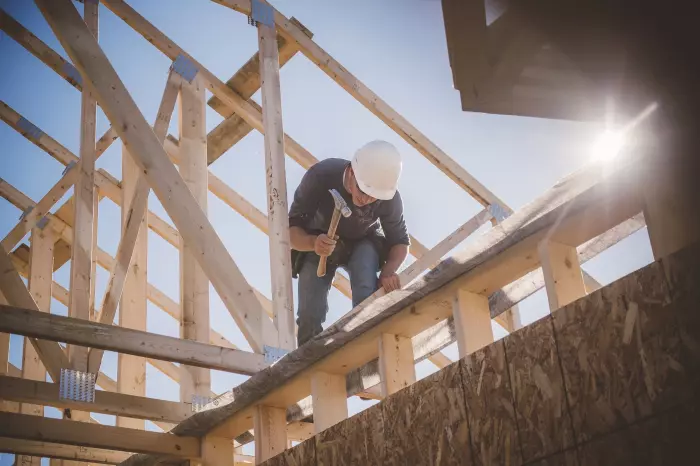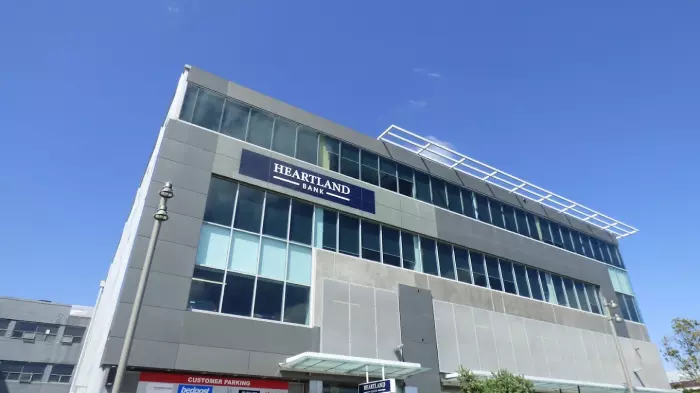BusinessDesk investments editor Frances Cook responds to emails from readers each week to answer questions about money. Below, you will find her expert advice. Send your own questions to [email protected].
Hello!
My question is: About a year and a half ago, my partner and I bought off the plans for $660,000 - a small, one-bedroom apartment.
We put down our 10% deposits to secure it and would pay the other 10% when we get our mortgage. It's been delayed by more than a year and in that time, interest rates have gone up and the value of our apartment has gone down. We don't know how much yet but likely to be a lot.
My question is – where does that leave us with a mortgage? We signed a contract to pay $660,000 but if the home is only worth, say $550,000 now, is that the value the bank uses when they give us a loan? If so, do we have to make up the $100,000 difference?
Given we have about 25-30% deposits, our loan based on the $660,000 was going to be $490,000 – but we don't know if that's right.
Hope that makes sense!
Thanks,
J
Hi J,
This is a sticky one, but it’s one that many first-home buyers will be finding themselves in right now.
I’ve talked to a few industry sources, and it basically comes down to this: it’s time to have a good chat with your bank.
There are quite a few factors that can change how you handle this one, and it can be influenced both by clauses in your mortgage and also the build contract itself. So getting the paperwork together and going through it with your lender is likely to be a good idea.
Here are the things you want to check with them.
The paperwork
First, did you get a valuation done when you signed up for this build? If you did, then you might be able to coast through without it being reassessed at the current value. That would mean you still get what you signed up for originally, which would be a good outcome.
If you delayed the valuation, for it to be done after the build was complete, that could be more of a problem. Not necessarily a fatal one, but something to be aware of.
Next, are you renewing your mortgage approval as the build progresses?
What several people warned me about was that some buyers get the original approval, let it lapse if there are building delays, and then try to apply again right before the build is completed.
This is not the best idea. It’s better to keep renewing the approval and keep it live during the build.
Another factor here is that you have a really healthy deposit size. Given that you originally signed up with a 25-30% deposit, this gives you more wriggle room if the value of the house has fallen.
The banks are under strict conditions not to lend to people who can’t afford to pay back a loan, under the Credit Contract and Consumer Finance Act (CCCFA). But that doesn’t seem to be you.
If you have a secure job, and a decent deposit, the bank should be willing to work with you to find solutions that don’t jeopardise your home-buying dream. It's another tick on your side that you are buying with a partner, as two incomes funding the mortgage is another risk-reducing factor.
There is a lot to be unhappy about in a situation that you haven’t caused, but the silver lining is that the bank is unlikely to treat you as a risky lending proposition, which is when doors really start slamming shut in your face.
Political realities
If you’d like some further reassurance ahead of talking to your bank about this, keep in mind the political situation that banks currently find themselves in.
There has been a lot of chatter about bank profits, and as we head into a recession politicians are clearly quite happy to use banks as a whipping boy, to take the heat from unhappy voters. There have been various pointed comments about reasonable profits and sector inquiries.
My point is not whether or not that’s fair, it’s that banks will be taking note of those comments as well, and which way the wind is blowing.
That means, while there will be some difficult situations to deal with in the coming months as the likely recession starts to bite, banks won’t want a wave of mortgagee sales or property deals falling over due to lack of finance.
Not a great look, when people are already looking sideways at the sector as a whole.
Banks are aware of their ‘social licence’, aka the amount of goodwill they have with the public, especially in times of financial difficulty.
So while you don’t want to blow into a meeting with the bank assuming that they’ll need to bow down to your demands, my suspicion is that they’ll want to work with you to find solutions, rather than knee-cap you.
Ultimately though, the main factors to consider will be whether you’ve already had a valuation done, keeping that approval renewed, and having a good honest conversation about the situation with your lender.
Here’s a bit more info from people currently working on problems like these:
Mortgage broker Bruce Patten, Loan Market
Normally when you purchase a property that’s brand new, you would have done a registered valuation at the time. Then the valuer would come back to do a completion certificate and wouldn't be revaluing the property, but just confirming it’s been completed as per the specifications etc.
However it's all down to the timeframe and whether the bank wants another full valuation, in which case you may be in low equity territory.
It's really down to a number of different factors and timing.
It's best to either speak to your mortgage adviser or the person that did your funding approval to ascertain what your situation will be.
When you have committed to a purchase, as long as you were unconditionally approved, the bank is very good at helping.
Which is quite reassuring. I also reached out to ANZ, and while they were cautious about getting into specifics, the subtext seems to be that they’re working with people like yourself behind the scenes.
ANZ spokesperson
Firstly, appreciate they may prefer not to say, but if this is an ANZ customer we’d really encourage them to get in touch (or I’m happy to take their details and put them in touch with someone). Alternatively, they should contact their bank.
While we don’t know the specifics of this situation, we’re happy to provide some general comments.
Customers purchasing off the plan with a delay in settlement do face higher risks, particularly in the current market.
It’s important for customers to understand their obligations and rights within the ‘off the plans’ contract. ANZ has specialist Construction Coaches to provide ongoing support to customers throughout the build process, including taking customers through their loan and deposit options.
Once a build starts, we keep in regular contact with our customers to ensure we maintain a good understanding of the status of the project and can provide support along the way if there are any unanticipated delays or costs.
We always want to see a successful outcome for our customers and would encourage our customers to get in touch with us early if they have concerns so we can work out how to help.
Sorry, we couldn’t be more specific but hope this helps.
Send questions to [email protected] if you want to be featured in the column. Emails should be about 200 words, and we won't publish your name. Unfortunately, Frances is not able to respond to every email received, or offer individual financial advice.
Information in this column is general in nature and should not be taken as individual financial advice. Frances Cook and BusinessDesk are not responsible for any loss a reader may suffer.














